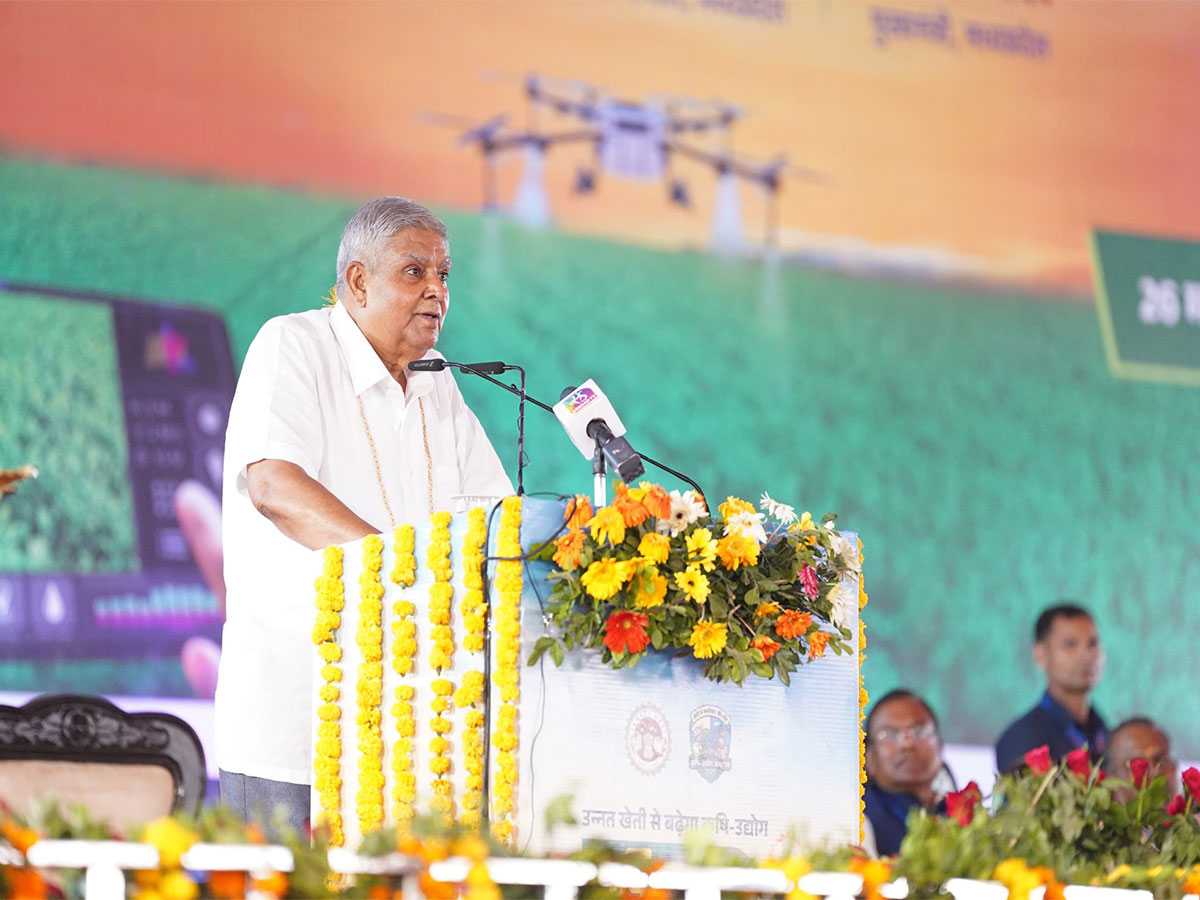Vice President Jagdeep Dhankhar on Monday underscored the need for direct transfer of all agricultural subsidies to farmers, saying that such a move would significantly enhance farmer incomes and strengthen rural prosperity.
Addressing the Agri-Industry Conclave in Narsinghpur, Dhankhar, citing international practices, pointed to the United States, where farmers receive direct government support, leading to household incomes that surpass national averages. “In our country, subsidies on fertilizers and other inputs are significant, but they are often indirect. If all subsidies were directly transferred, each farmer could potentially receive over ₹35,000 annually,” he said. Dhankhar urged the Indian Council of Agricultural Research (ICAR) to conduct a detailed study on the matter to ensure maximum benefit to farmers.
Agriculture More Than an Economic Activity
Describing agriculture as more than just an economic sector, Dhankhar highlighted its deep integration with India’s industrial base. “Half of our population is dependent on agriculture. Strengthening this sector means strengthening the nation,” he said, commending the initiatives of Madhya Pradesh Chief Minister Mohan Yadav, especially in promoting livestock, dairy, and horticulture.
He emphasized that agro-based industries, Members of Parliament, legislators, and NGOs should actively support agri-entrepreneurship by adopting villages and promoting local farmer-led enterprises. “We need millions of agripreneurs who can lead in marketing, value addition, and processing of agricultural produce,” he said.
India’s Firm Stand Against Terrorism
Praising the valor of India’s Armed Forces and the country’s firm stance against terrorism, Dhankhar said, “Today’s India will not tolerate terrorism. What hadn’t been done in 70 years was boldly accomplished by the Prime Minister—stopping water to Pakistan and declaring that blood and water cannot flow together.”
Referring to Operation Sindoor, launched in response to the Pahalgam terror attack, he said it had sent a strong message globally. “India’s strikes in Bahawalpur and Muridke targeted the roots of terror. There was no demand for proof because the consequences were visible. The entire nation today stands united in patriotic fervor,” he added.
He praised the Prime Minister’s leadership, likening his resolve to that of an “iron man,” and said the country’s strong response had instilled national pride among its citizens.
India’s Economic Rise
Highlighting India’s rapid economic progress, Dhankhar said the country had moved from the 11th to the 4th-largest economy in the world in just a decade. “We have surpassed France, the UK, and Japan. Next in line is Germany. India is on track to becoming a global superpower,” he remarked, pointing to the rapid infrastructure development taking place across the country.
Transforming the Farmer into an Entrepreneur
Stressing the importance of transforming Indian farmers into entrepreneurs, the Vice President said, “Farmers must lead in dairy, fruit, vegetable production, and value addition. They should not just produce but also process, market, and brand.” He encouraged institutions such as Krishi Vigyan Kendras and ICAR to become more active in facilitating this transformation.
Praising recent steps taken by the Madhya Pradesh government in dairy and livestock promotion, he said India must aim to become a global leader in value-added dairy and agricultural products. “The day is not far when Indian farmers will go beyond milk to ice creams and even export-quality products like rasgullas,” he noted.
Patriotism and Perseverance of Farmers
Lauding the spirit of Indian farmers, Dhankhar said, “Despite delays in rain, harsh conditions, or financial strain, farmers never give up. Their resilience and patriotism are unmatched. If encouraged to explore commercial avenues, they can accelerate India’s goal of becoming a developed nation well before 2047.”
The Vice President called on all stakeholders—government, industry, and civil society—to come together in strengthening the agricultural sector, emphasizing that India’s path to prosperity depends on the empowerment of its farmers.










